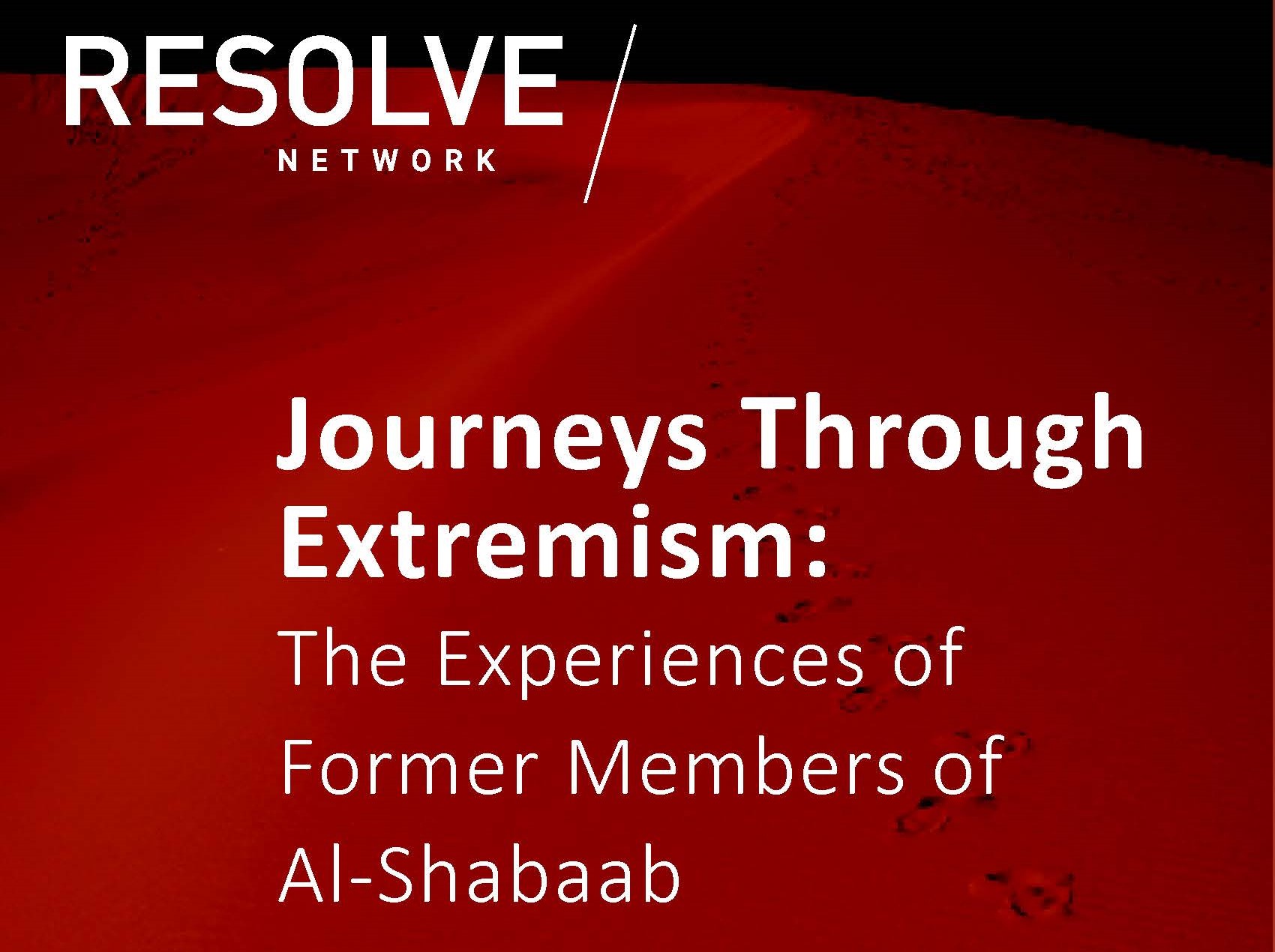Journeys through Extremism: The Experiences of Former Members of Al-Shabaab

Abstract
This research report applies the Attitudes-Behaviors Corrective (ABC) Model of Violent Extremism to map personal journeys in and out of al-Shabaab, the al-Qaeda affiliate operating in Somalia and the wider Horn of Africa. The ABC Model provides a framework through which to analyze individual trajectories in relation to sympathy for and actual involvement in violent extremism. The study was designed to deliver key insights for policy and practice by revealing the extent to which these journeys vary between respondents. The ABC Model was also designed as a platform through which to explore drivers of attitudinal and behavioral change, offering a granular understanding of the processes of joining and leaving the group.
This report features the findings from interviews with thirteen ex-members of the group, including those from its intelligence agency (the Amniyat), military wing (the Jabhat), and police force (the Hizbah), as well as drivers, teachers, and others in support roles. These findings provide important considerations for the design of interventions to prevent further involvement and to facilitate disengagements from the group, including recommendations for communications campaigns, rehabilitation services, and the relevance of territorial control.
Suggested citation: Heide-Ottosen, Sif, Yahye Abdi, Abdullahi Ahmed Nor, James Khalil, & Martine Zeuthenn, Journeys through Extremism: The Experiences of Former Members of Al-Shabaab. Washington, DC: RESOLVE Network, 2022. https://doi.org/10.37805/cbags2022.3.
This publication and research were produced with funding from the U.S. Agency for International Development (USAID)’s Africa Bureau. RESOLVE would like to thank USAID’s Africa Bureau for its generous support for this report and RESOLVE’s Community-Based Armed Groups Research Initiative.
The views expressed in this publication are those of the authors. They do not necessarily reflect the views of the RESOLVE Network, acknowledged partners contributing to the production of this publication,
the U.S. Institute of Peace, or any entity of the U.S. government.
Updated: September 7, 2023